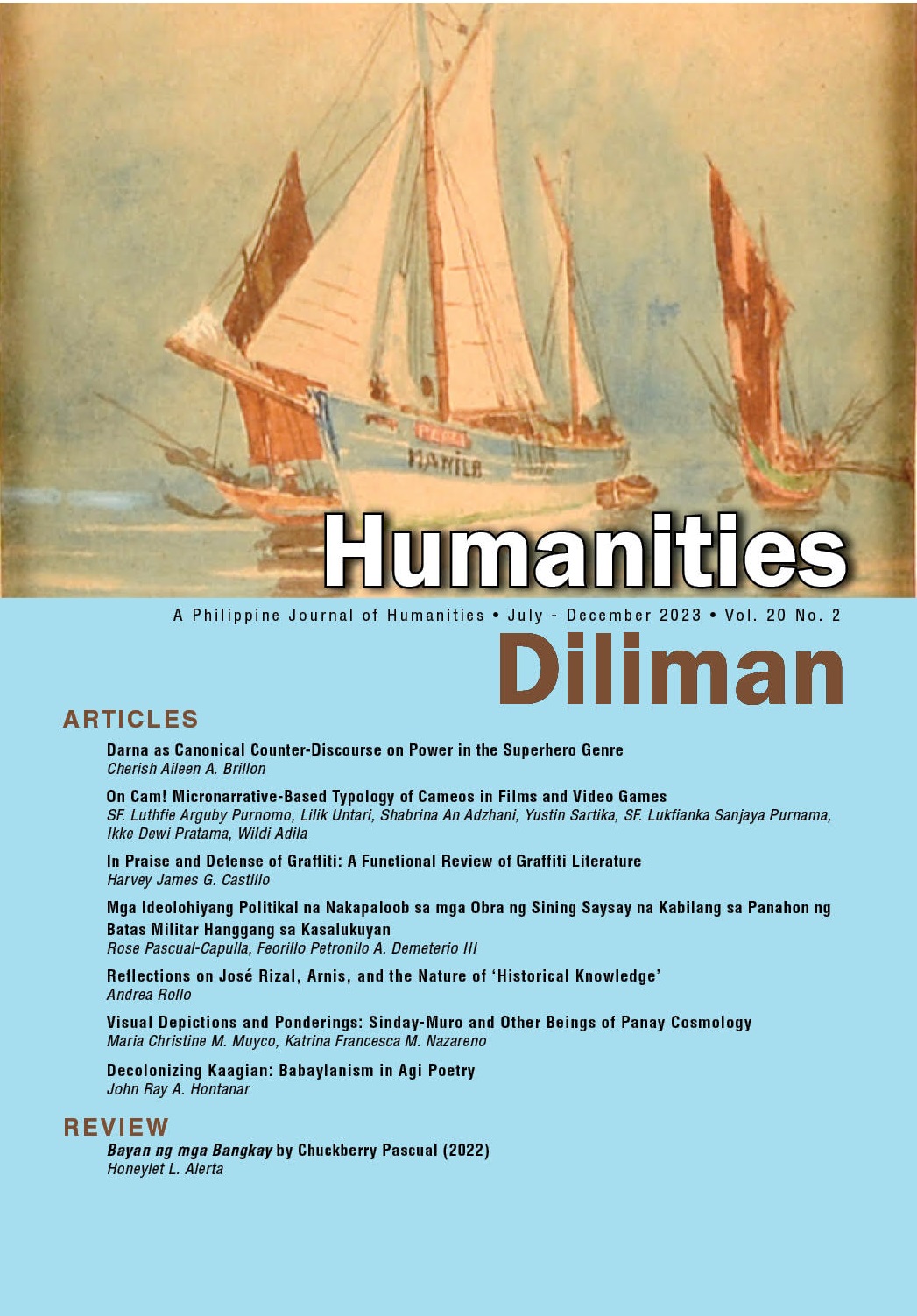Decolonizing Kaagian: Babaylanism in Agi Poetry
Abstract
This paper analyzes Agi poetry and utilizes the Panayanon concept of power called gahum as its critical framework. Philippine gay literature unfurled after the publication of Ladlad: An Anthology of Philippine Gay Writing (1994) and continues to reach higher grounds. However, gay criticism has been too focused on the discourse of the Manila bakla and not much has been said about indigenous models of queerness in the regions. As agi is an indigenous articulation of homosexuality in Panay in Central Philippines, this paper traces the connection of the agi’s attendant performance (kaagian) with the indigenous tradition of babaylanism. By investigating the strong presence of babaylanic imagery in agi poetry, this study attempts to unravel the connection of kaagian with a precolonial form of power called gahum, which is deeply attuned to the animist spatiality of Panay. The babaylan is a shaman, culture bearer, and political leader that embodies physical and spiritual gahum that go beyond the human realm. By exploring the interconnected concepts of kaagian, gahum, and babaylanism, this critical study reveals that agi writers champion the image of the babaylan to subvert colonial-imposed hegemonies and decolonize the agi identity.


